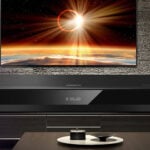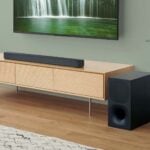Bowster
Auditioning
- Joined
- Jul 31, 2007
- Messages
- 3
- Real Name
- Mark
A friend of mine asked me if I thought bi-wiring each speaker to each channel would make a difference, (i.e. two speaker wires from the speaker bi-wire input posts fed, twisted togeteher, to the appropriate single amplifier output post).
At first I said no, because it is the same as using a speaker cable that is twice the diameter, (at short distances there would be no discernible difference). He tried it anyway and claims the sound improved dramatically, especially the lower end.
I gave this some thought and maybe it does make sense.
What he did was to run two speaker wires from each of his 5 output channels. At each speaker, he pulled out the bi-wire shorting strap and plugged in the four leads. Essentially what he has now is a ten speaker system driven by 5 channels. The speakers are in parallel so the impedance is cut in half and the power drawn from the amp is much higher (i.e. 140 watts at 8 ohms and 210 watts at 4 ohms).
Is this really what's happening?
Or is it all smoke and mirrors and the tweak should make little or no difference as I first thought?
At first I said no, because it is the same as using a speaker cable that is twice the diameter, (at short distances there would be no discernible difference). He tried it anyway and claims the sound improved dramatically, especially the lower end.
I gave this some thought and maybe it does make sense.
What he did was to run two speaker wires from each of his 5 output channels. At each speaker, he pulled out the bi-wire shorting strap and plugged in the four leads. Essentially what he has now is a ten speaker system driven by 5 channels. The speakers are in parallel so the impedance is cut in half and the power drawn from the amp is much higher (i.e. 140 watts at 8 ohms and 210 watts at 4 ohms).
Is this really what's happening?
Or is it all smoke and mirrors and the tweak should make little or no difference as I first thought?






